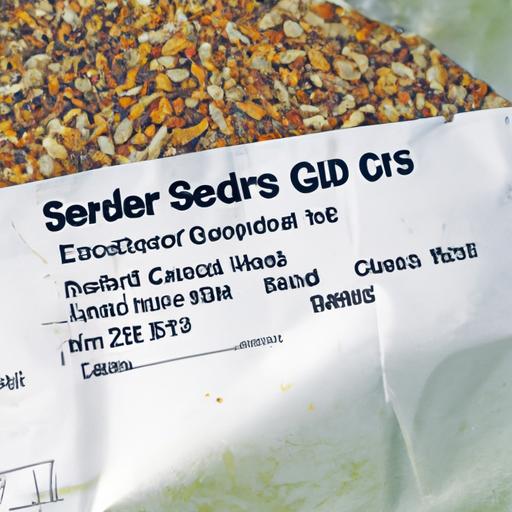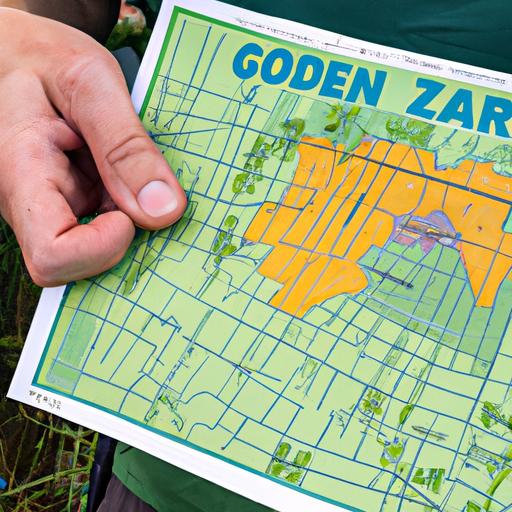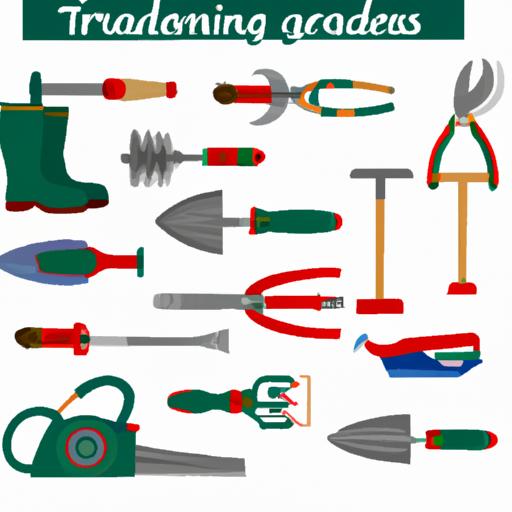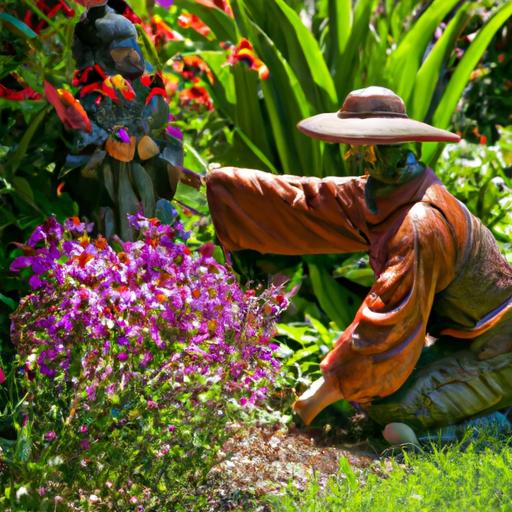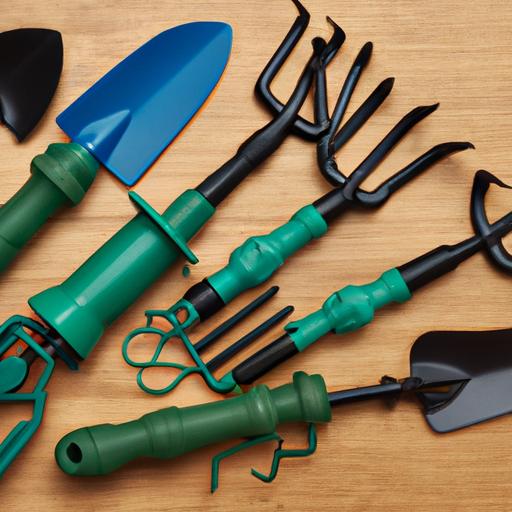When Should You Start Gardening?
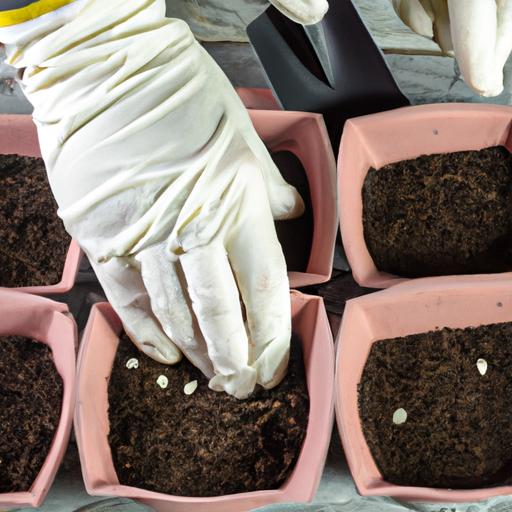
Gardening: a therapeutic escape, a way to reconnect with nature, and a rewarding journey. But have you ever wondered, “When should I start gardening?” Timing is crucial in gardening, as it can greatly impact the success of your plants. In this article, we will explore the importance of starting gardening at the right time and the benefits it brings. So, let’s dig in!
Importance of Gardening
Gardening is not just about beautifying our surroundings; it goes beyond that. It offers a multitude of benefits for both our physical and mental well-being. Cultivating plants helps improve air quality, as they absorb carbon dioxide and release oxygen. Additionally, it allows us to grow our own fresh vegetables, herbs, and fruits, promoting a sustainable and healthy lifestyle.
Benefits of Starting Gardening at the Right Time
Timing plays a crucial role in gardening success. Starting gardening at the appropriate time ensures that plants have the best chance to thrive. When you align your gardening activities with the seasons, you provide plants with the ideal conditions they require for growth. This means they will receive the right amount of sunlight, temperature, and rainfall, maximizing their potential.
Moreover, starting gardening at the right time allows you to plan and prepare accordingly. It gives you an opportunity to research and select the most suitable plants for each season, ensuring a bountiful harvest or a vibrant display of flowers. By timing your gardening activities, you can avoid potential setbacks such as frost damage or excessive heat stress.
Remember, just like nature, gardening is a delicate dance. It requires us to synchronize our actions with the rhythm of the seasons. So, when should you start gardening? Let’s explore the factors to consider before diving into this green adventure in the next section.
Stay tuned for the next section, where we will delve into understanding the basics of gardening and the factors you need to consider before starting your gardening journey. Get ready to unearth the secrets to a successful garden!
Understanding the Basics of Gardening
What is Gardening?
Gardening is an art form that allows us to nurture and cultivate plants for various purposes. It involves the process of planting, growing, and caring for plants, whether it be flowers, vegetables, herbs, or even trees. Gardening can be a hobby, a form of self-expression, or a means to provide sustenance for ourselves and our families.
Types of Gardening
Gardening is a versatile activity that can be adapted to different spaces and preferences. Here are a few types of gardening to consider:
Indoor Gardening
Indoor gardening is ideal for those with limited outdoor space or for those who want to bring nature indoors. It involves growing plants inside your home, utilizing containers, hanging baskets, or hydroponic systems. This type of gardening allows you to create a green oasis even in the smallest of spaces.
Outdoor Gardening
Outdoor gardening is the traditional form of gardening, where plants are grown in the open air, directly in the ground or in raised beds. This type of gardening offers a wider variety of options and allows for larger-scale cultivation. It is perfect for those who have ample space and enjoy working in the fresh air and sunshine.
Container Gardening
Container gardening is a popular choice for urban dwellers or individuals with limited space. It involves growing plants in pots, containers, or even repurposed objects like buckets or old tires. Container gardening offers flexibility in terms of plant selection and placement, allowing you to create stunning displays on patios, balconies, or windowsills.
Tools and Equipment Needed for Gardening
To embark on your gardening journey, you’ll need a few essential tools and equipment. These include:
- Garden gloves to protect your hands
- Spade or shovel for digging holes and turning soil
- Pruning shears or secateurs for trimming and shaping plants
- Watering can or hose to provide hydration to your plants
- Rake for removing debris and leveling the soil
- Hand trowel for transplanting seedlings or small plants
- Wheelbarrow or garden cart for transporting heavy materials
- Gardening fork for loosening soil and removing weeds
These are just a few of the basic tools you may need, but as you delve deeper into gardening, you may discover additional tools that suit your specific needs.
In the next section, we will discuss the important factors to consider before starting your gardening journey. Stay tuned to ensure you set the stage for gardening success!
Factors to Consider Before Starting Gardening
Climate and Weather Conditions
One of the crucial factors to consider before embarking on your gardening journey is the climate and weather conditions in your region. Different plants thrive in different climates, so it’s important to choose plants that are well-suited for your specific climate zone. Consider the average temperatures, humidity levels, and precipitation patterns throughout the year. This information will help you select plants that can withstand the environmental conditions in your area and increase their chances of survival.
Available Space for Gardening
The amount of available space will greatly influence the type and scale of gardening you can undertake. Whether you have a small balcony, a backyard, or even just indoor space, there are gardening options to suit every setting. Assess the space you have and determine if it receives adequate sunlight or if it is shaded. Additionally, consider the soil quality and drainage in your space. Some plants may require specific soil conditions, so it’s important to evaluate the suitability of your space before starting your garden.
Personal Preferences and Interests
Gardening is a personal endeavor, and it’s essential to consider your own preferences and interests when deciding what to grow. Are you more drawn to flowers or vegetables? Do you prefer low-maintenance plants or are you willing to invest more time and effort? Consider the purpose of your garden and what you hope to achieve. Whether you’re looking to create a beautiful outdoor oasis or grow your own nutritious food, aligning your garden with your personal preferences and interests will make the experience more enjoyable and fulfilling.
Time Commitment and Dedication
Gardening requires time and dedication. Before you start, evaluate how much time you can realistically devote to tending to your garden. Some plants require daily care, while others may only need attention once a week. Understanding the time commitment involved will help you choose plants that align with your schedule and ensure that you can provide the necessary care they require. It’s better to start small and gradually expand your garden as you become more comfortable and confident in your gardening abilities.
In the next section, we will discuss the best time to start gardening. Discover the seasons that offer optimal conditions for planting and watch your garden flourish!
Best Time to Start Gardening
Spring: Ideal Season for Most Plants
Spring is the season of renewal, and it’s also the ideal time to kickstart your gardening endeavors. As the weather starts to warm up, plants awaken from their winter slumber, ready to burst into life. This is the perfect time to sow seeds, whether it’s vegetables, herbs, or flowers. The longer days and moderate temperatures create an optimal environment for germination and growth. Additionally, spring is an excellent time to prepare your soil, enriching it with compost and nutrients to provide a nourishing foundation for your plants.
Early Summer: Planting Warm-Season Crops and Flowers
As the sun shines brighter and the temperatures rise, it’s time to embrace the summer season in your garden. Early summer is the perfect window for planting warm-season crops like tomatoes, peppers, cucumbers, and squash. These heat-loving plants thrive in the balmy weather, producing an abundance of delicious harvests. It’s also an excellent time to fill your garden with colorful blooms by planting annual flowers such as marigolds, petunias, and zinnias. The vibrant hues will undoubtedly bring joy and beauty to your outdoor space.
Late Summer/Early Fall: Preparing for Cool-Season Crops
As summer transitions into fall, it’s time to shift your focus towards cool-season crops. Late summer and early fall are the opportune moments to prepare your garden for vegetables like lettuce, spinach, kale, and broccolThese resilient plants can withstand the cooler temperatures that lie ahead, ensuring a fresh and nutritious harvest during the colder months. It’s crucial to plan and sow these crops in advance, allowing them enough time to establish strong roots before winter arrives.
Winter: Planning, Organizing, and Maintenance Tasks
While winter may seem like a dormant period for gardening, it’s actually an essential time for planning, organizing, and performing maintenance tasks. Use this season to reflect on your past gardening experiences, evaluate what worked well and what could be improved. Research new plant varieties, create a gardening calendar, and map out your garden layout for the upcoming year. Additionally, winter is an excellent time to clean and sharpen your gardening tools, repair any structures, and ensure everything is in order for the next growing season.
Stay tuned for the next section, where we will explore the benefits of starting gardening early and how it can enhance your gardening experience. Get ready to uncover the secrets to a thriving garden!
Benefits of Starting Gardening Early
1. Maximizing the Growing Season
Starting your gardening journey early allows you to take full advantage of the growing season. By planting seeds or young plants at the right time, you give them ample time to establish strong roots and flourish. This extended period of growth enables you to enjoy a longer harvest season and witness the fruits of your labor in abundance. Whether it’s a colorful array of flowers or a bounty of fresh vegetables, starting early ensures you make the most of nature’s offerings.
2. Learning and Gaining Experience
Gardening is a continuous learning process, and starting early gives you ample time to gain valuable experience. Each season presents new challenges and opportunities, and by starting early, you can experiment with different plant varieties, techniques, and strategies. Learning from your successes and failures not only improves your gardening skills but also deepens your understanding of the plants and ecosystem around you. Embrace the journey and let your garden be your classroom.
3. Reducing Stress and Improving Mental Well-being
Gardening is a therapeutic activity that can reduce stress and improve your mental well-being. Early gardening allows you to immerse yourself in the natural world, connecting with the earth and its rhythms. The act of nurturing plants and witnessing their growth can be immensely gratifying, bringing a sense of accomplishment and fulfillment. Gardening also provides a peaceful escape from the hustle and bustle of daily life, allowing you to find solace in the tranquility of nature.
4. Connecting with Nature and the Environment
Starting gardening early gives you the opportunity to develop a deeper connection with nature and the environment. As you spend time outdoors, you become more attuned to the changing seasons, weather patterns, and the intricate web of life that surrounds you. Gardening fosters an appreciation for the interdependence of all living things and encourages sustainable practices. By tending to your garden, you become an active participant in preserving and protecting our precious planet.
Stay tuned for the final section, where we will summarize the importance of starting gardening at the right time and encourage you to embark on your gardening journey now. Get ready to sow the seeds of inspiration and watch your garden thrive!
Conclusion
In conclusion, the timing of when you start gardening is crucial for a successful and fulfilling experience. By understanding the importance of gardening and the benefits of starting at the right time, you can set yourself up for a flourishing garden.
Gardening offers numerous advantages, from improving air quality to providing fresh produce. By aligning your gardening activities with the seasons, you create an environment that fosters optimal growth for your plants. This means they receive the right amount of sunlight, temperature, and moisture, resulting in healthier and more vibrant vegetation.
Starting gardening early not only maximizes the growing season but also allows you to gain valuable experience and knowledge. As you nurture your garden, you’ll witness the wonders of nature unfold before your eyes, connecting you with the environment and reducing stress.
So, when should you start gardening? The answer lies in understanding your climate, available space, and personal preferences. Spring, early summer, late summer/early fall, and even winter all offer unique opportunities for different types of gardening activities.
Now is the time to embark on your gardening journey. Whether you have a small balcony or a spacious backyard, starting gardening at the right time will bring you joy, satisfaction, and a deeper connection with nature.
So, grab your gardening tools, prepare the soil, and let the seeds of your garden dreams take root. Happy gardening!
Thank you for reading this article on when to start gardening. We hope it has provided you with valuable insights and inspiration for your gardening endeavors. Stay tuned for more gardening tips and tricks to nurture your green thumb!
Conclusion: So above is the When Should You Start Gardening? article. Hopefully with this article you can help you in life, always follow and read our good articles on the website: plants.123didulich.com
